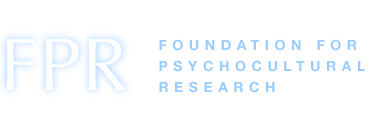Moses Chao, PhD, Skirball Institute of Biomolecular Medicine, NYU
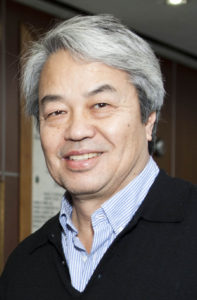
NYU Langone Medical Center
Center For Brain Aging
Second Annual Research Day
February 16, 2011
Moses Chao, PhD, Professor, Skirball Institute of Biomolecular Medicine, NYU School of Medicine; Past President, Society for Neuroscience
The generation and differentiation of neurons and glial cells are dependent upon cell-cell interactions mediated by a wide variety of growth factors and cytokines. The laboratory is interested in receptor-mediated mechanisms that direct cell differentiation versus cell proliferation in the nervous system. A major goal is to identify the biochemical steps that provide specificity in NGF signaling. Control of cell survival and death by neurotrophins is dictated by an unusual transduction system consisting of two transmembrane receptors, the TrkA tyrosine kinase and the p75 neurotrophin receptor, a member of the TNF receptor superfamily. Members of the NGF family are responsible for neuronal cell survival by activating Trk tyrosine kinases. However, NGF can have the opposite effect, promoting a cell death signal through the p75 receptor. NGF can induce apoptosis of mature oligodendrocytes cultured from rat cerebral cortex. NGF binding to oligodendrocytes expressing the p75 receptor, but not TrkA, resulted in an increase c-jun kinase and caspase activity. Therefore, NGF has the ability of promoting cell survival and cell death in specific cell types through novel signaling mechanisms involving TrkA and p75 receptors. The structural and biochemical features of these two receptors are being defined together with their intracellular signaling mechanisms.
Laurence, Kirmayer, MD, FRCPC, FCAHS, FRSC, Division of Transcultural Psychiatry, McGill University
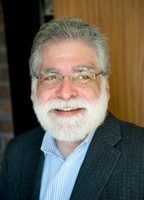 Laurence J. Kirmayer, MD, FRCPC, FCAHS, FRSC, James McGill Professor and Director, Division of Social and Transcultural Psychiatry, Department of Psychiatry, McGill University
Laurence J. Kirmayer, MD, FRCPC, FCAHS, FRSC, James McGill Professor and Director, Division of Social and Transcultural Psychiatry, Department of Psychiatry, McGill University
Laurence J. Kirmayer, MD, FRCPC, FCAHS, FRSC is James McGill Professor and Director, Division of Social and Transcultural Psychiatry, Department of Psychiatry, McGill University. He is Editor-in-Chief of Transcultural Psychiatry, and Director of the Culture & Mental Health Research Unit at the Institute of Community and Family Psychiatry, Jewish General Hospital in Montreal, where he conducts research on culturally responsive mental health services for immigrants and refugees, the mental health of Indigenous peoples, and the philosophy of psychiatry. He founded and directs the annual Summer Program and Advanced Study Institute in Cultural Psychiatry at McGill. He also founded and directs the Network for Aboriginal Mental Health Research. His past research includes studies on cultural consultation, pathways and barriers to mental health care for immigrants and refugees, somatization in primary care, cultural concepts of mental health and illness in Inuit communities, risk and protective factors for suicide among Inuit youth, and resilience among Indigenous peoples. Current projects include: mental health promotion for Indigenous youth; the integration of ethnography and neuroscience in global mental health; and models of mental health services for multicultural societies.
More info at https://www.mcgill.ca/tcpsych/faculty/laurencekirmayer
Hakwan Lau, PhD, Associate Professor, Department of Psychology, UCLA
Hakwan Lau, PhD, Associate Professor, Department of Psychology, UCLA
I work on the neural mechanisms of conscious perception, attention, and metacognition, using human neuroimaging, invasive electrophysiology, and (Bayesian) computational modeling. We also apply what we learn to develop novel treatments, e.g. using double-blind controlled neurofeedback to reduce fear & anxiety. For more details please visit my lab webpage: qualia.psych.ucla.edu
Jeffrey G. Snodgrass, PhD, Professor, Department of Anthropology, Colorado State University
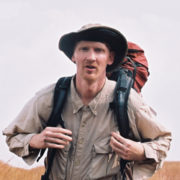 Jeffrey G. Snodgrass, PhD, Professor, Department of Anthropology, Colorado State University
Jeffrey G. Snodgrass, PhD, Professor, Department of Anthropology, Colorado State University
I am a critical psychiatric anthropologist, who investigates the social foundations of mental well-being and the bio-psycho-cultural therapeutics of ritual and play. I am especially interested to understand how human health and healing processes function in natural and (technologically) built environments experiencing dramatic change and high risk and uncertainty. My research suggests that local therapies and sources of health resilience are especially important in such contexts and as such should be incorporated more fully into the global mental health agenda.
I direct the Ethnographic Research and Teaching Lab (ERTL), which gets students involved in my ongoing collaborative research. In my lab, I merge research and teaching in ways that aim to move the field of cultural anthropology beyond the “lone ethnographer” approach (see my recent Nov. 2016 contribution to the Annals of Anthropological Practice).
More info at https://anthropology.colostate.edu/author/jsnodgra/
Samuel Veissière, PhD, Assistant Professor, Culture, Mind, and Brain Program, Division of Social and Transcultural Psychiatry, McGill University
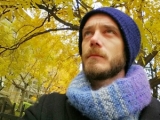 Samuel Veissière, PhD, Assistant Professor, Culture, Mind, and Brain Program, Division of Social and Transcultural Psychiatry, McGill University
Samuel Veissière, PhD, Assistant Professor, Culture, Mind, and Brain Program, Division of Social and Transcultural Psychiatry, McGill University
Dr. Veissière studies the interaction between cognition, culture, and human behavior in evolutionary and developmental perspectives. As humans, our evolved psychology is adapted (and constantly adapting!) to the unique challenges of being a social, cultural, political, and cooperative species. Samuel and his colleagues draw on range of experimental, ethnographic, and theoretical models and methods to study the cognitive underpinnings of culture, and the role of culture and context in shaping the regimes of attention, expectations and intuitions that drive human behaviour.
He is the author of The Ghosts of Empire (Transaction, 2011) and a number of articles and book chapters on topics ranging from Internet-mediated experience and sociality, theories of Self and consciousness, emergent sociality, street survival and the politics and ethics of research to socio-cognitive dimensions of hypnosis and placebo effects.
More info at https://www.mcgill.ca/tcpsych/faculty/samuel-paul-louis-veissiere
Carol Worthman, PhD, Samuel Candler Dobbs Professor of Anthropology, Emory University
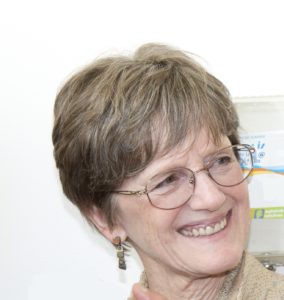 Carol Worthman, PhD, Samuel Candler Dobbs Professor of Anthropology, Emory University
Carol Worthman, PhD, Samuel Candler Dobbs Professor of Anthropology, Emory University
Carol M. Worthman currently holds the Samuel Candler Dobbs Chair in the Department of Anthropology, Emory University (Atlanta), where she also directs the Laboratory for Comparative Human Biology. After taking dual undergraduate degrees in biology and botany at Pomona College, Dr. Worthman took her PhD in biological anthropology at Harvard University, having also studied endocrinology at UCSD and neuroscience at MIT. She joined the nascent anthropology faculty at Emory University in 1986, and has helped to build its biocultural focus and establish its leadership position in the field.
Professor Worthman takes a biocultural approach to pursuit of comparative interdisciplinary research on human development, reproductive ecology, and biocultural bases of differential mental and physical health. She has conducted cross-cultural ethnographic and biosocial research in ten countries, including Kenya, Tibet, Nepal, Egypt, Japan, and Papua New Guinea, as well as in rural, urban, and semi-urban areas of the United States.
